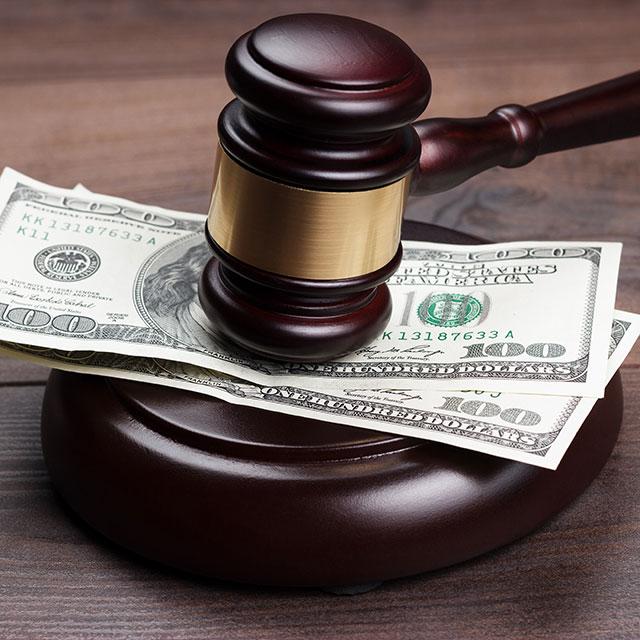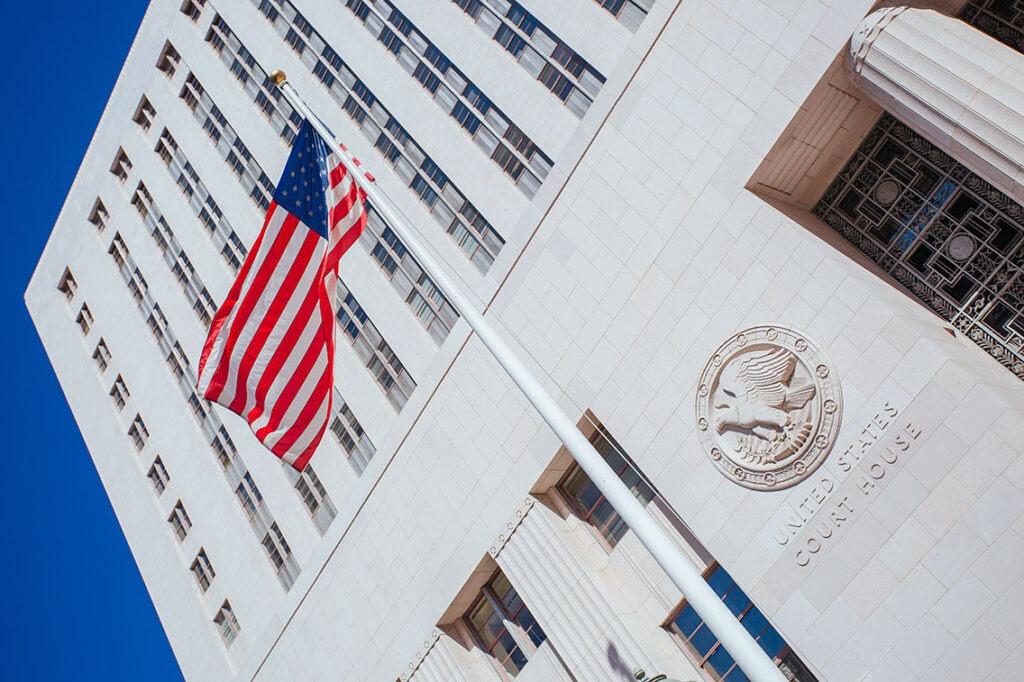Stipulated damages are common in trademark litigation negotiations. When in a trademark litigation involving a brand for a tech startup company, the goal is usually to settle before trial, provided a good settlement agreement can be reached. One deal point, or negotiation point, that may arise in trademark settlement negotiations, whether under FRE 408 or other negotiations, can be the inclusion of attorneys’ fees, or stipulated damages. What is the difference between these two clauses in the context of trademark litigation?
Trademark infringement can cause significant harm to businesses, affecting their reputation, market share, and financial stability. To address these issues, the legal system allows trademark holders to seek damages from infringers. One of the mechanisms used to determine these damages is stipulated damages. At L.A. Tech and Media Law Firm, we provide expert legal guidance to help businesses navigate trademark disputes and secure the compensation they deserve. Here, we explore the concept of stipulated damages in trademark cases.
Attorneys’ Fees in Trademark Litigation Cases
An Attorneys’ Fees clause in a trademark litigation settlement agreement applies to both parties. This clause will typically cover any litigation or legal proceedings arising out of, or relating to, the Settlement Agreement. This includes an action by one party to enforce the covenants contained in the Agreement. The standard language in this clause creates a “loser pays” system. The losing party in the action arising out of the Settlement Agreement must pay to the prevailing party all reasonable (or actual) attorneys’ fees and expenses and court costs, in addition to any damages to which that party was entitled. An Attorneys’ Fees clause may be included in any contract and can apply in any jurisdiction.
In forming this clause, the parties must decide whether the payment is “actual” or “reasonable” attorneys’ fees. Actual attorneys’ fees can be any amount, while a “reasonable” attorneys’ fees clause provides the court with some discretion as to how much should actually be awarded to the prevailing party.
In the case of a Trademark Settlement Agreement, the trademark owner is more likely to bring suit arising from the Agreement than the alleged infringer. Therefore, including an attorneys’ fees clause is likely more beneficial to the trademark owner than it is to the alleged infringer. From the perspective of the alleged infringer, not including this clause may mean that the trademark owner is deterred from bringing small claims for any breaches of the Agreement by the alleged infringer.
Stipulated Damages in Trademark Litigation Cases
The Stipulated Damages clause in a Trademark Settlement Agreement is the payment specified for the alleged infringer to pay to the trademark owner. It will describe the amount of payment, the method or manner of payment, and the time period in which the payment must be made.
Similar to the Attorneys’ Fees clause, a Stipulated Damages clause can be included in any contract and may be enforceable in any jurisdiction.
Typically, the main goal of a trademark owner in any Trademark Settlement Agreement is to get the alleged infringer to agree to stop using the infringing mark. This agreement to stop using the mark can be all-encompassing, or may apply to only specific goods or services, or particular regions or markets. There are many cases where the alleged infringer is a small company that may not have the capability to pay meaningful damages to the trademark. Because of this, monetary damages are not as common in Trademark Settlement Agreements.
In those cases where monetary damages are agreed to, it is very important to include the timing of the payment(s). Without a specific stipulation of this time period, the alleged infringer has full discretion over when to make payments, making it very difficult to determine at what point the alleged infringer is in breach of the Trademark Settlement Agreement.
What Are Stipulated Damages?
Definition and Purpose of Stipulated Damages
Stipulated damages refer to a pre-determined amount of money that the parties to a contract agree upon as compensation in the event of a breach, including trademark infringement. In trademark cases, stipulated damages are often included in settlement agreements or licensing contracts to provide a clear and enforceable remedy if one party violates the agreement. The purpose of stipulated damages is to simplify the resolution of disputes and provide certainty regarding the financial consequences of infringement.
Legal Framework
Stipulated damages are enforceable under contract law principles. Courts generally uphold these provisions if they are reasonable and not punitive. The amount must be a fair estimate of the actual harm that would result from the breach, rather than an arbitrary or excessively high figure designed to punish the infringer.
Benefits of Stipulated Damages
Predictability and Certainty
One of the primary benefits of stipulated damages is the predictability they provide. Both parties know in advance the financial implications of a breach, which can reduce uncertainty and the likelihood of protracted litigation. This certainty can be particularly valuable in trademark disputes, where the actual damages can be difficult to quantify.
Simplified Dispute Resolution
Stipulated damages can simplify the resolution of trademark disputes. Instead of engaging in lengthy and costly litigation to determine the extent of the damages, the parties can rely on the pre-agreed amount. This can expedite the settlement process and reduce legal expenses for both parties.
Stipulated Damages as Deterrence
Including stipulated damages in contracts and licensing agreements can serve as a deterrent to potential infringers. Knowing that a significant financial penalty is at stake can discourage parties from violating the terms of the agreement or infringing on the trademark.
Challenges and Considerations
Reasonableness and Enforceability
For stipulated damages to be enforceable, they must be reasonable and reflect a genuine attempt to estimate the actual harm caused by the breach. Courts may scrutinize the amount to ensure it is not punitive. If the stipulated damages are deemed excessive, the court may reduce the amount or deem the provision unenforceable.
Proving Actual Harm
While stipulated damages can provide a clear remedy, the trademark holder may still need to demonstrate that actual harm occurred as a result of the infringement. This can involve presenting evidence of lost sales, damage to reputation, or other tangible impacts.
Negotiation and Drafting
Careful negotiation and drafting are essential when including stipulated damages in agreements. Both parties should consider the potential risks and benefits, and the amount should be based on a realistic assessment of the potential harm. Consulting with an experienced trademark attorney can help ensure that the provision is fair, reasonable, and legally sound.
Case Examples and Applications
Licensing Agreements
Stipulated damages are commonly used in trademark licensing agreements. For example, a licensor might include a stipulated damages clause to address potential breaches by the licensee, such as unauthorized use of the trademark or failure to meet quality standards. This can provide a clear financial remedy if the licensee violates the terms of the agreement.
Settlement Agreements
In settlement agreements, stipulated damages can be used to resolve ongoing trademark disputes. By agreeing to a specific amount as compensation for past infringement, the parties can avoid further litigation and reach a mutually acceptable resolution.
The Value of Stipulated Damages in Trademark Cases
Stipulated damages offer a practical and effective way to address breaches and infringements in trademark cases. By providing predictability, simplifying dispute resolution, and deterring potential infringers, stipulated damages can play a crucial role in protecting trademark rights. At L.A. Tech and Media Law Firm, we are committed to helping businesses navigate the complexities of trademark law and secure the compensation they deserve. Contact us today to learn how we can assist in drafting enforceable agreements and protecting your valuable intellectual property.
Of course, there is a difference between negotiated attorney fees in a contract, and statutory attorney fees under the Federal Trademark Act (Lanham Act). For a more detailed analysis, visit this blog where we discuss statutory attorney fees in trademark jurisprudence.
It is important for entrepreneurs engaged in settlement negotiations to understand the difference between these two significant clauses in Trademark Settlement Agreements. An omission of a proper attorneys’ fees clause can lead to a trademark owner incurring thousands of dollars in future attorneys’ fees and costs that could have been avoided through more careful drafting of the Settlement Agreement.
Any trademark owner that intends to enter into settlement negotiations with an alleged infringer of their trademark should consult an experienced trademark litigation attorney to ensure that they do not leave themselves exposed to any potential future liability that could have been avoided.



